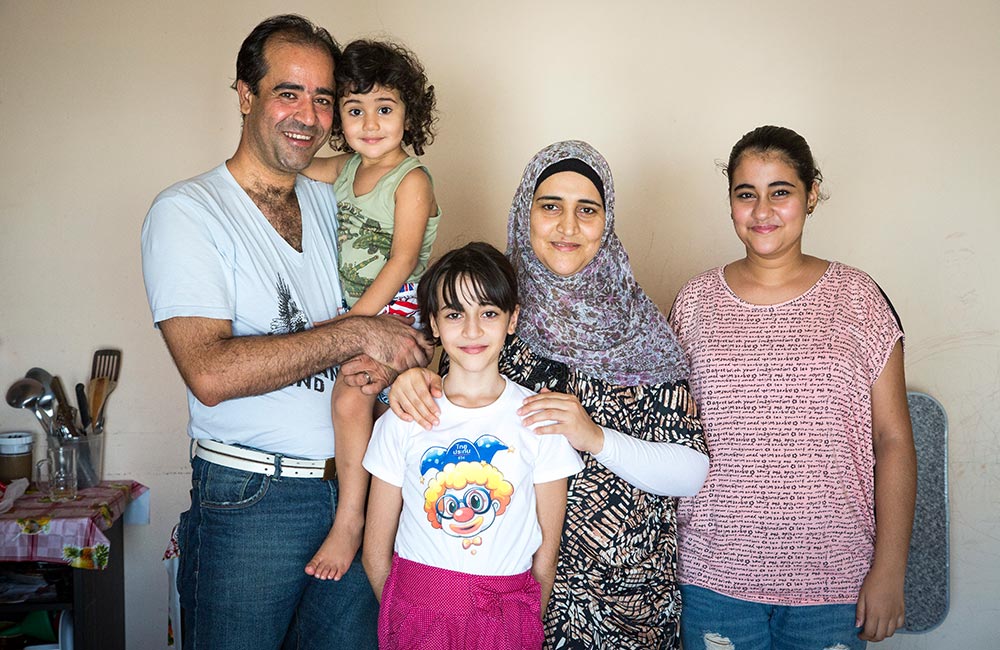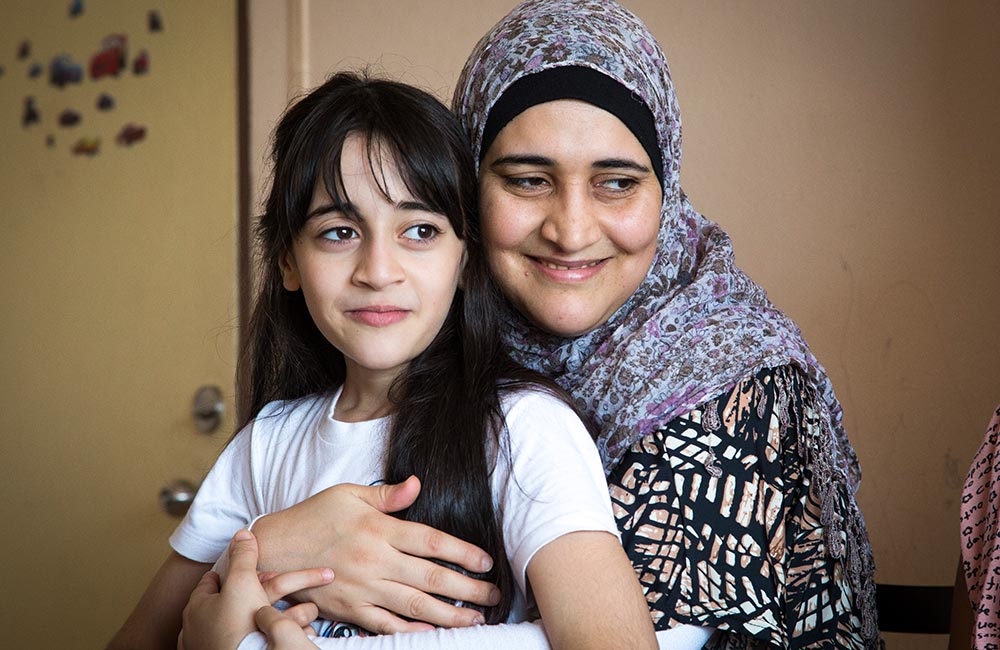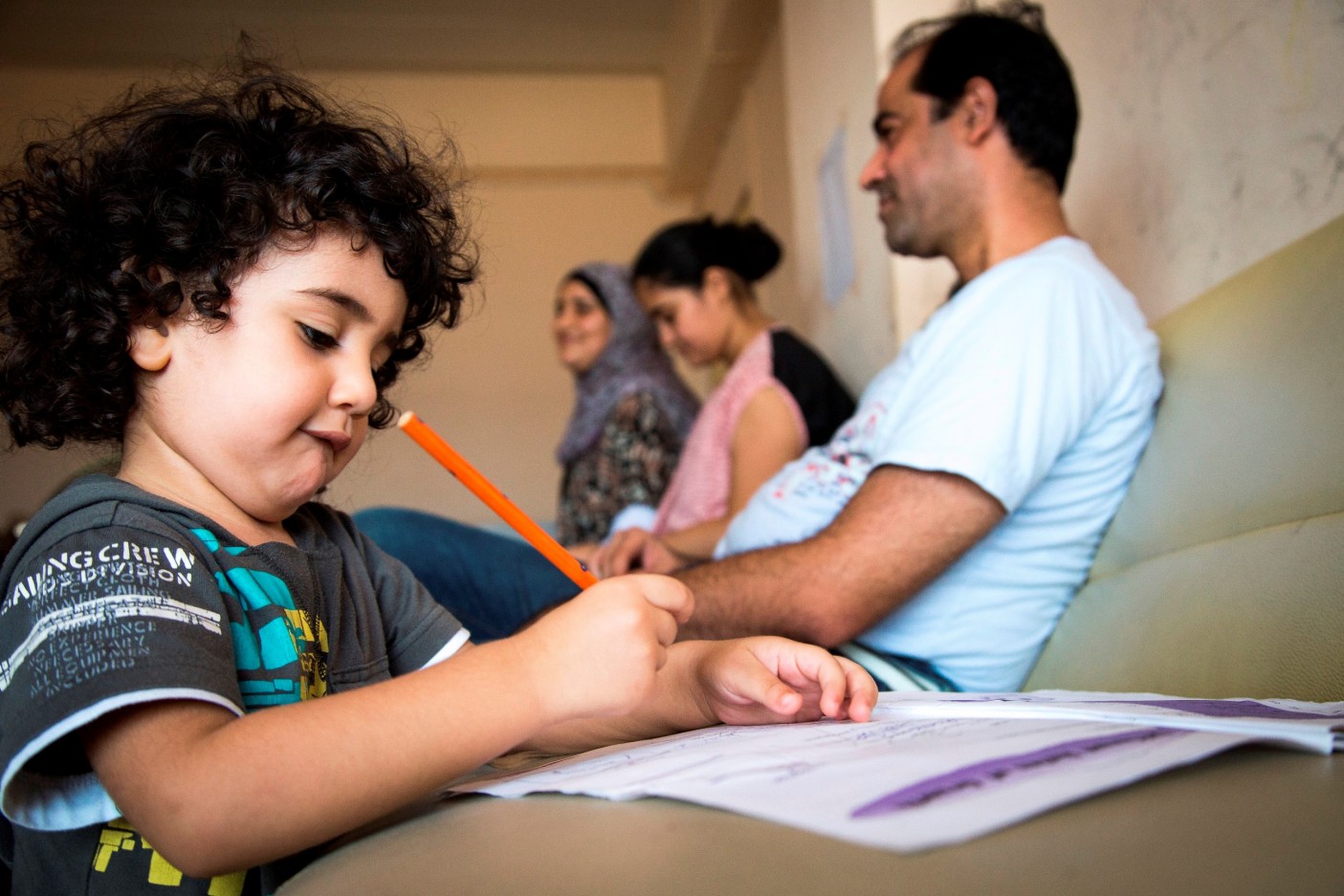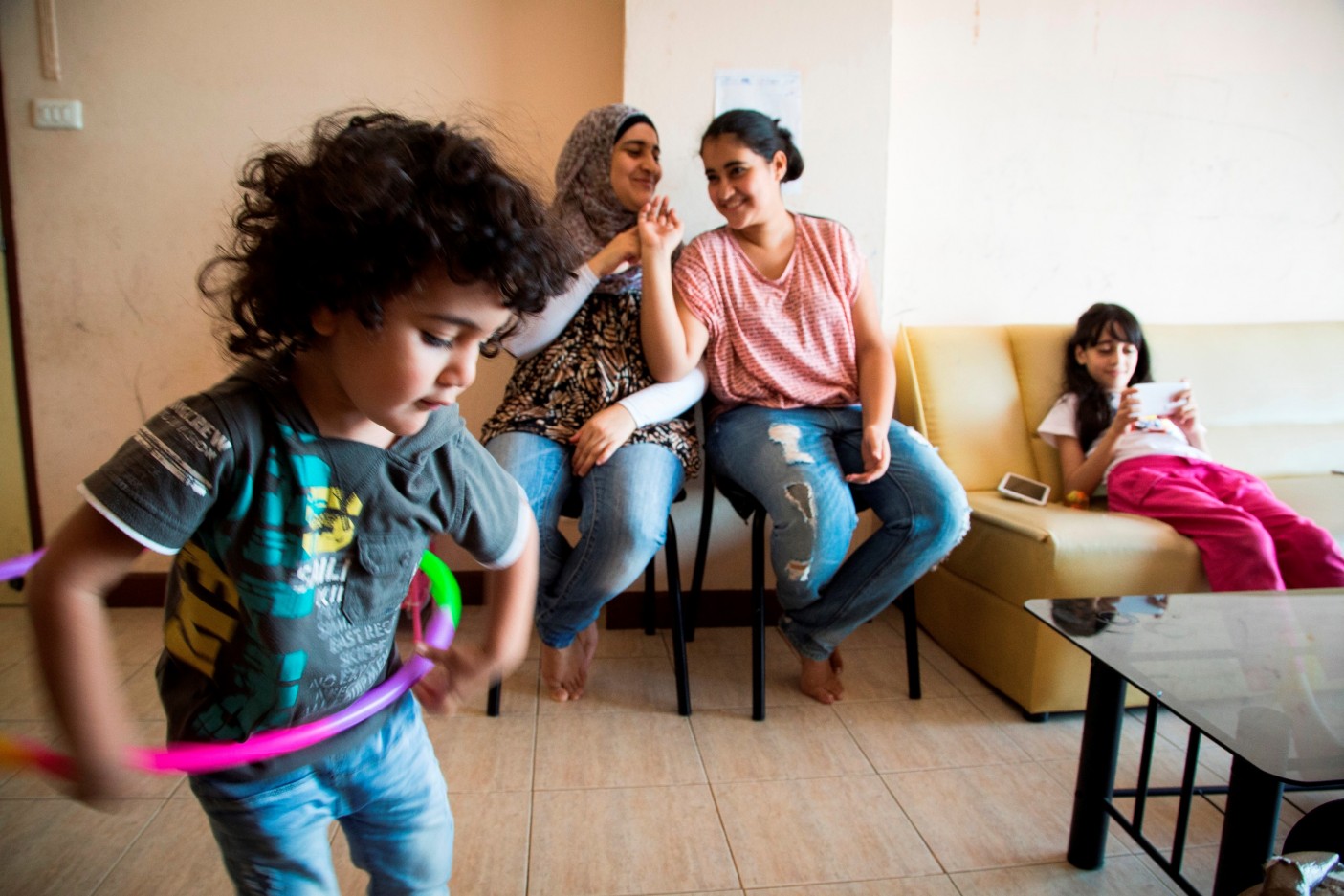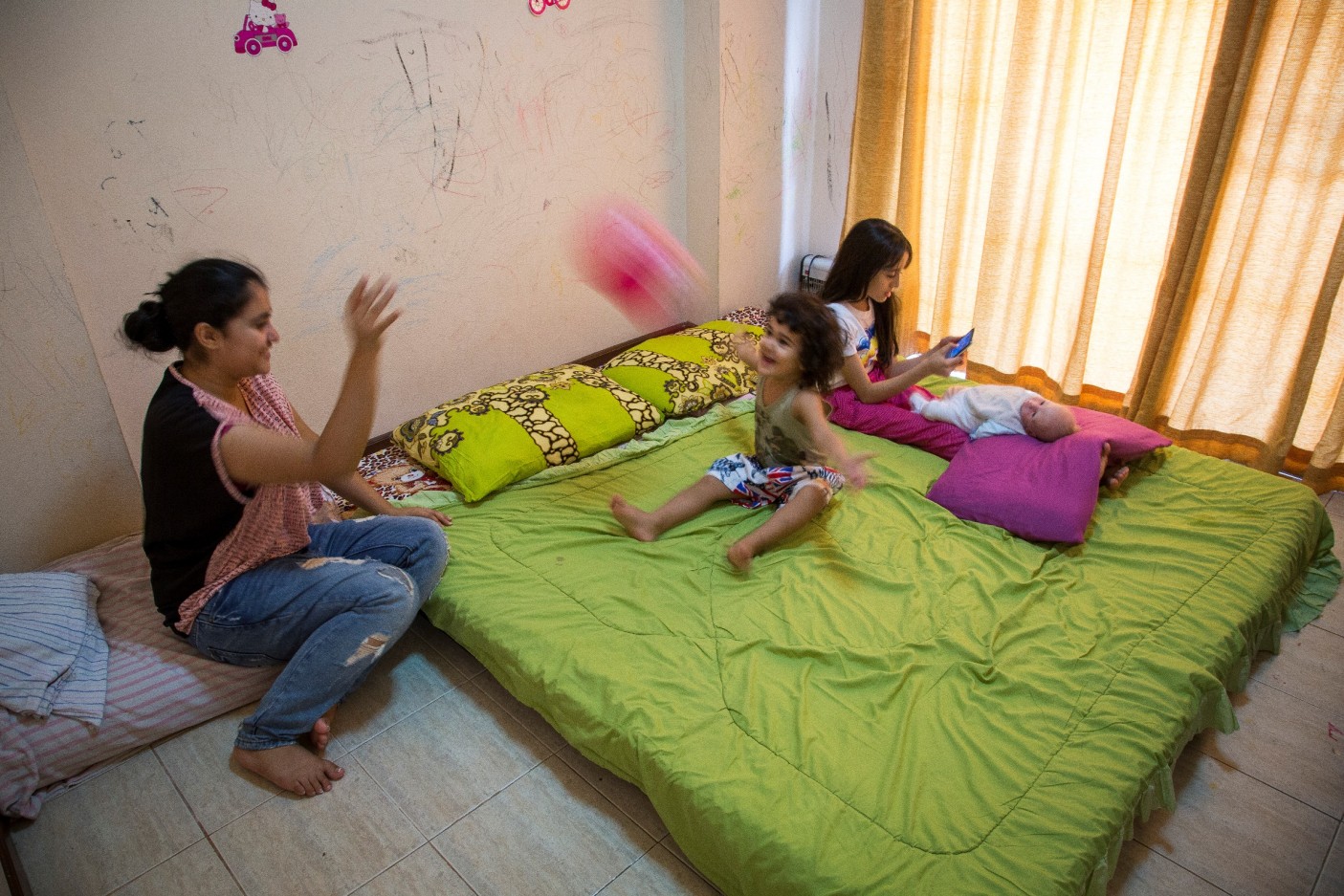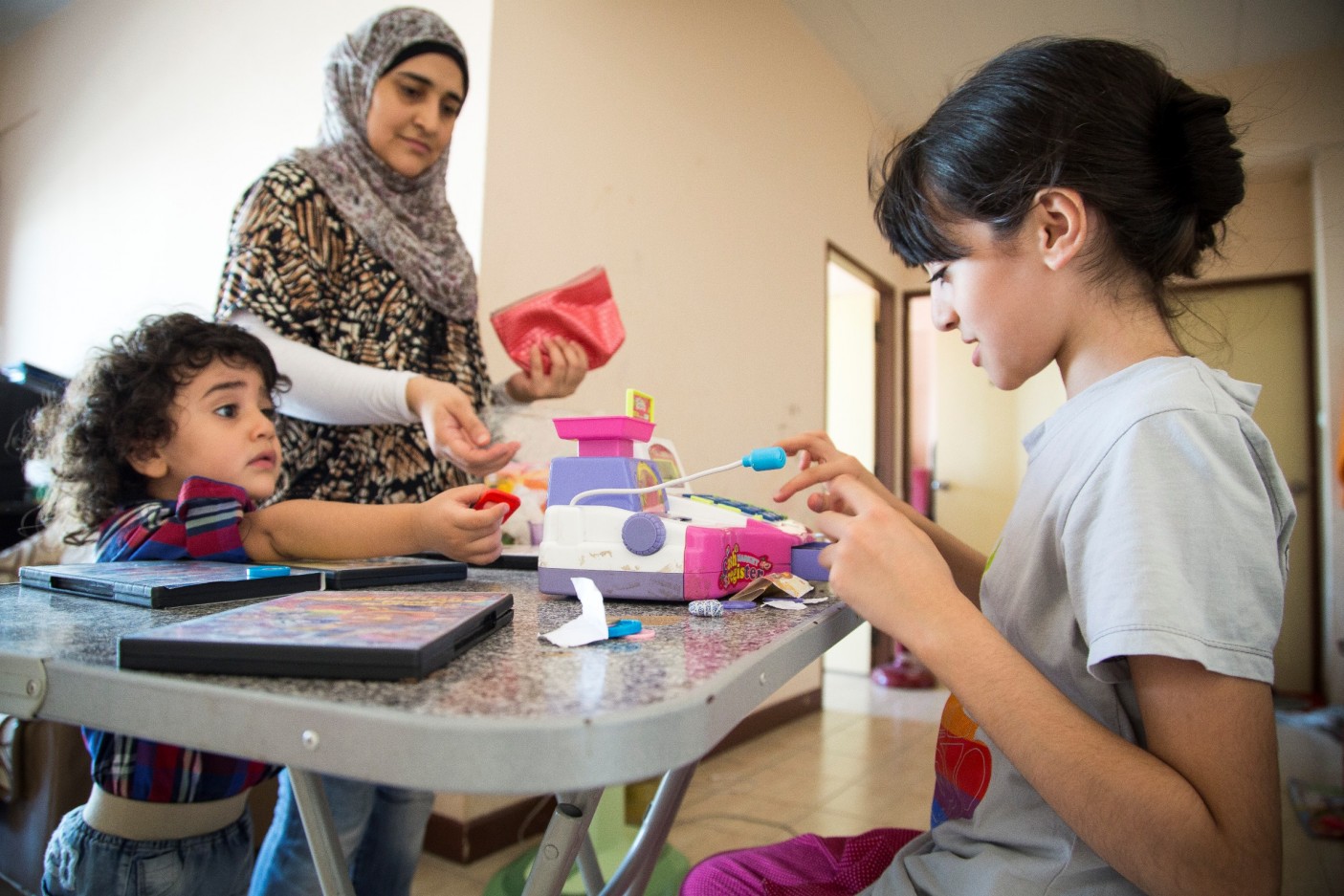Saxophonist. Dad. Mozart fan.
Nader’s family escaped sniper fire.
Nader, 41 years old: “I fell in love with music when I was 15. I played drums, trumpet and trombone in the school band, but when I discovered the saxophone there was no looking back. I’ve been playing professionally for 18 years.
Music has helped me in everything – morally, financially, even my manners. It helps maintain one’s soul and is second only to my family. Before we got married, I tried to teach my wife, Rana, to play the flute. We gave up after a few lessons; she’s happy being a good listener.
When she was pregnant, we played Mozart to expose our daughter Aya to music. Now Aya prefers One Direction. I taught all my children to play instruments and I’m a strict teacher. Aya sings and plays the saxophone, Maya and Ahmed love to sing and dance. On special occasions, we perform together.
We hardly noticed when our girls were growing up. But Ahmed is hyperactive and needs 15 people to watch him. We can’t leave him alone or he’ll get into trouble. Everything at home is placed above his reach. The walls are full of his drawings. When he’s naughty, I say he takes after his mother, but I’m really grateful Rana has brought up the children in a way that makes me very proud.”
Nader is a third-generation refugee. His parents fled Palestine as children and he grew up in Damascus, Syria. In 2011, the conflict forced the family to flee. His daughter Aya was 10 when she heard her first blast. “I screamed and woke everyone in the building,” she says. “When we were escaping in our neighbour’s taxi, snipers fired at us. We found a bullet hole in the trunk.”
The family moved from one place to another until it became too dangerous to stay. In 2013, Nader left for Bangkok, Thailand. Two months later, his wife Rana and the three children joined him, lugging two suitcases and a saxophone. The family has recently been accepted for resettlement in a European country and hope to put their refugee legacy behind them. “Once we get there, I want to join a school, learn the language and invite my new friends for my birthday party,” says Aya.
Refugees. Ordinary people living through extraordinary times. Share their stories.
Like Nader and his family, more than half the refugees UNHCR serves live in cities – not camps. Urban settings present possibilities for refugees to remain anonymous, earn a living, and build a better future. But they also present dangers: refugees may be vulnerable to exploitation, and they can be in competition with the poorest local workers for the worst jobs. UNHCR works through municipalities, local community associations and others to help serve refugees in towns and cities.
More stories
Hany – Student. Brother. Poet.
“I left my home because of the war.”
Ibrahim – English student. Brother. Footballer.
“I am alive thanks to my sister.”
Katia – Gardener. Mother. Nature lover.
Katia and her family had to flee fighting twice.

